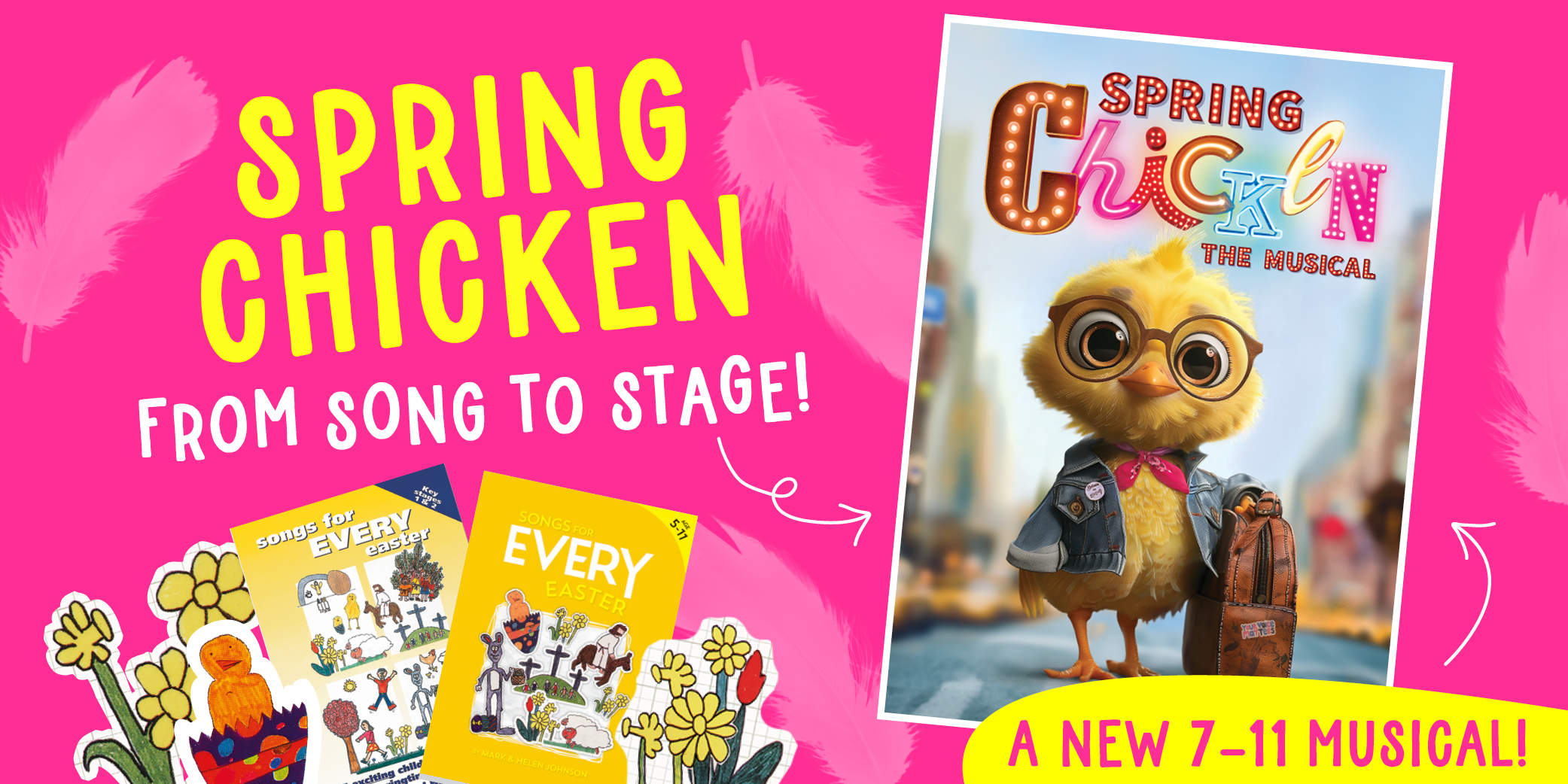
Singing teachers face all sorts of challenges in their day-to-day work. It’s a tough gig, but an immensely enjoyable and creative one.
Clearly, the pandemic is the single biggest health and safety challenge that any teacher has had to face and this has hit pupils and staff hard. Singing, aerosols and COVID have been a nightmare.
According to the Incorporated Society of Musicians in their ground-breaking report The heart of the school is missing, COVID-19 has had a devastating impact on music education in our schools across the UK.
Singing, practical music-making, extra-curricular activities and instrumental lessons have all been negatively affected by coronavirus.
The report found that ‘music teachers’ health and well-being are being negatively impacted through the changes they are experiencing in the delivery of classroom and extra-curricular music as well as the reduced support they are receiving from their schools.’
Although music teachers have displayed ‘immense creativity in constantly adapting to provide continuous access to music for young people’, there is now a real danger of everyone being out of step and out of tune.
The pandemic has wreaked havoc on schools and access to a quality music education has been disjointed and erratic.
Although remote learning has become a way of life for many, this can be patchy and is no substitute for live face-to-face lessons.
The other challenge is that teachers, like airline pilots, are getting rusty due to the lack of ‘flying time’ during the pandemic. Singing can be done by zoom, but this isn’t the same as flying the plane with all the turbulence.
Returning to school will happen again, although with restrictions and adaptations. Singing in schools will require pressing ‘reset’, going back to basics and having a long-term policy for managing risks, especially in terms of location, duration, participation, audience, ventilation and volume of singing as detailed in the collaborative 2020 PERFORM study. See this video too especially the presentation by the voice doctor Declan Costello.
As huge as they are, beyond the issues surrounding the pandemic, what other challenges do singing teachers face?
Classroom management is the key component of the success of any classroom. Get the learning environment right and discipline and motivation will follow.
To avoid ambiguity, confusion and inconsistency then, the bottom line is this: be crystal clear. Your students need to know what to expect from your singing lessons, and the standards you set, therefore, have to be unambiguous.
Ensure that your sky-high expectations include plenty of room for fun.
Singing is a dynamic, interactive and physical experience that can be exhausting. To make it memorable many teachers dramatize, model and perform with gusto, but this comes at a cost.
Singing demands a lot from your mind, body and soul, so it’s important to build in rest periods for yourself and your voice. Don’t do all the work, because your voice has a limited vocal budget each day. Know when to sing and when not to sing to avoid vocal fatigue.
Building singing stamina needs training, so see yourself as a vocal athlete so that you can sing ‘longer and stronger’. Good diet, plenty of sleep, healthy hydration and regular disciplined warm-ups will keep you fighting fit.
You might love singing, but there are plenty of pupils who don’t and they retreat, pull down the portcullis and clam up.
Your biggest challenge is orchestrating classroom life and motivating the super self-conscious to see singing as a non-threatening and enjoyable activity, so they participate willingly and look forward to a lesson rather than dread it.
Relationship-building is crucial as this gives you the leverage you need to get all pupils on board, so they see that your singing classes are full of support, camaraderie, joy and friendship.
The magic ingredient is confidence, and reluctant singers need constant top-ups and consistent encouragement.
For top tips about how to turn reluctant singers into vibrant singers, head over to the Vibrant Music Teaching Podcast.
Teaching a class or giving one-to-one sessions is a constant process of active assessment and editing, and you are dealing with a huge range of abilities from complete beginners to those preparing for drama auditions.
A huge challenge, therefore, is to think about how you can make your lessons as productive as possible for each pupil according to their individual needs and goals.
It is important to get to grips with their vocal strengths and weaknesses, the timbre of their voice, the control of their vibrato, their breath control, their grasp of vocal techniques, their vocal expression, what their level of knowledge of musical theory is, their performance ability, their preferred musical genres, their sight-singing skills, what they expect from a lesson and how long they have been singing for.
Getting to know pupils individually will help you build their confidence and help them to fulfil their potential, but this requires constant evaluation and revisiting.
Singing might be in your blood, but how far does it extend around the school? How many cross-curricular opportunities for singing are being missed? Are your colleagues behind you? A significant challenge is to make your school a singing school.
The All-Party Parliamentary Group for Music Education published the State of the Nation report in 2019 and said that the government should encourage all schools to embed a culture of singing via classroom teaching.
The level of in-school support you receive can vary considerably and singing might not be on the radar of the senior leadership team, so make them aware and champion singing far and wide as not just something you can do.
Make sure that your school has a Singing Strategy detailing your ethos, beliefs and aims for embedding singing, so that all children have access to good-quality singing opportunities every week.
Parental and community involvement is also another area of support that can be a challenge, so take the time to know your school communities, their history and what the community values, and be visible through open performances and outreach.
Effective singing teachers are those who keep their scientific and pedagogical knowledge base updated.
Opportunities to deepen your skill set are a joint enterprise between you and your school. Making these opportunities happen is key, as they seldom come knocking at your door.
Any singing teacher who is serious about the quality of their teaching skills should think about joining the UK’s only singing teachers’ association – The Association of Teachers of Singing (AOTOS). This is a brilliant way of connecting with other singing teachers and sharing techniques, repertoire and experiences through local pods and further afield.
AOTOS membership also plugs you into conferences, workshops, masterclasses, repertoire days and training courses so that you are in the know, your teaching repertoire is kept fresh and you are up to date with the latest research, developments and news.
There are plenty of opportunities for free online training, books and guides too, so take a look at what’s on offer and self-develop at your own pace. For example, The Musicians Union, Sound Connections, ISM, National Youth Choirs of Great Britain, Voces8, Music Mark, Friday Afternoons, Voice Workshop UK, British Voice Association, Voices Foundation and ABCD.
Invest time in some podcasts too, such as The Naked Vocalist, The Full Voice and Be A Singing Teacher (BAST). Take a look at the Top 25 Singing Podcasts You Must Follow in 2021.
Pupils are easily influenced by the myriads of pop-singing shows now saturating the TV schedules and this means they are learning some unhelpful singing techniques. It also means they are learning a very narrow range of notes.
A big challenge for singing teachers, therefore, is to move children away from bad habits and unhealthy singing styles, which many experts believe can lead to children imitating performers and straining their voices.
The Royal Opera House’s Create and Sing Carmen programme helps young singers extend their range and warm up properly, and aims to stop them ‘belting out’ pop songs like they are on The X Factor in a way that could hurt their vocal cords.
This project is worth signing up for as it introduces dramatic singing, healthy singing, good technique and vocal placement, and introduces children to an operatic repertoire. It also teaches children about that great singing ‘non-negotiable’ – learning to breathe efficiently and effectively.
Singing teachers have their own language and this can get in the way of a good song. It can also get in the way of children understanding.
Some say, ‘Sing through the hole in the top of your head’ or ‘open your throat’, which are just confusing.
Expert vocal coach Steve Giles (2018) says that singing teachers say weird things such as ‘place the sound forward’ or ‘squeeze your trapezius’, but these aren’t helpful, so the challenge is to keep it simple and steer clear of the lingo.
The singing community has its own glossary of terms and there are some words that all singers need to know, but don’t overload children with technical terms and expressions like ‘thyroid tilt’ and other phrases that they don’t need to know.
A significant challenge is to help children bridge the gap between technique and performance. Everyone can sing, but not everyone can tell the story and put heart and soul into it.
Remember to invest time and effort into musical storytelling as this will help children feel physically more relaxed and less self-conscious, and so help with the actual performance of a song.
Always encourage children to read the lyrics beforehand, focus on punctuation and work out the breathing spaces. Help children to map the emotional journey of a song and teach them how to place themselves inside the song’s context to engage emotionally with the words.
Encourage children to find their own voice rather than emulate someone else, otherwise the song is stripped of its honesty.
Children naturally compare themselves to their peers and will soon tell you who is ‘good at singing’.
A challenge for any teacher is therefore to convince children that there is no such thing as an innate ‘natural talent’ for singing and that their friends are not ‘born singers’, because they aren’t.
Every child has to be imbued with the self-belief that they can sing, but getting good comes with lots of practice!
As Sloan (2013) says, ‘rest assured – scratch a professional singer, and you will find layers of long, hard, arduous work’. Children need to know this. They also need to know that singing well and with confidence can be learned.
The challenges of singing are big, but the challenges of being a singing teacher are bigger and we have probably only just scratched the surface of some of the issues involved. Take a look at more in the Trinity College guide Overcoming Singing Teachers’ Greatest Challenges.




